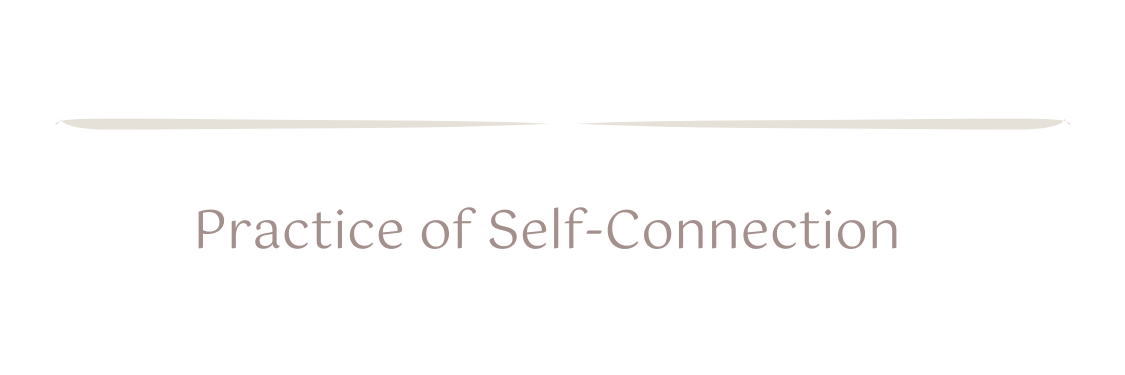It’s the start of a new week and a new monthly theme. (Did you catch the Monthly Edition that went out yesterday? Be sure to give it a read if you haven’t already).
With the change in seasons, I’m feeling the tenderness of transition. If you are too, I hope you’ll take this as an invitation to go softly. The world is so harsh sometimes, but we don’t have to be. We can choose the softer path.
This month, we’re going to be exploring the power of curiosity in connection.
We’re starting strong with this week’s intention:
Drop the Judgment
“Curiosity will conquer fear even more than bravery will.”
James Stephens
I know what you’re thinking. “No more judgment? Yeah, right! Have you been in my mind?” No, friend, I haven’t. But I’ve been in mine. Do you know where judging myself harshly has gotten me? (Can you see it coming?)
Nowhere.
At least nowhere good. Judging myself only leads to a dark place. Sometimes that’s a swirling pit of shame, and sometimes guilt. Other times, it’s disgust with my own weakness. In the best case, it leads to being disconnected from myself. It certainly always feels like punishment—self-inflicted punishment.
And where do these judgments come from? They may have started from comments from others, messages picked up in family, community, or even in media. But they don’t live on in those places. They live on in the mind and heart every time weakness is demonized.
Now, before I jump in to the rest of this, let me make this clear: we are human (newsflash). We will make judgments (it happens). But we don’t have to sit idly by and let them be the overarching narrative. Not anymore. We can choose to soften our approach to ourselves. In fact, it’s imperative that we do.
Judgment is based on assumption. It doesn’t ask questions or seek to understand. It often jumps to conclusions, and then sticks to those conclusions until convinced otherwise.
Curiosity can help us from shutting down with criticism, and instead choose the gentler path. Shaming ourselves won’t help, but shifting our perspectives—looking up and around—will allow our eyes to fall on other possibilities. Curiosity is an open door where harsh judgment is a slammed door in the face. Do you see the difference in energy here?
Curiosity disarms defenses. When we lead with genuine interest, our inner worlds learn to respond with letting down their self-protective guard. If we want to build on the foundation of trust we have going on, we have to be mindful of the way we approach ourselves.
In order to see and understand the inner workings of our hearts, we have to be curious enough to reach past the quick judgments, and dig deeper. Curiosity keeps us moving when judgment would have us stop in our tracks.
The trick is to take all the criticism we are used to hurling at ourselves and question it. This is the simple shift we make. We may not be able to get rid of hard experiences or emotions, but we can learn to bring curiosity and compassion to them. When we lean in to the discomfort of vulnerability, we make space to understand ourselves better, which, in turn, helps us see where we might need to bring more support to our systems. (Good news: we don’t have to do it alone.)
The best place—the only place—to start is right where we are. With each intentional turn of curiosity toward our reactions, feelings, and habits, we learn more about who we are, and what we need to grow.
Let this be a reclamation—a reclamation of the wonder of curiosity and the beautiful connections that lie on the other side of the tension of disappointment, weakness, or failure. It can also be a relearning—relearning how to be more childlike in our approach to what we find, and to remove the guilt, shame, fear, and control that has kept us from ourselves for far too long.
How often do you battle your inner critic?
(This is the harsh voice that demands more of you than you expect of others.)
As you go about your day, pay attention to when you rush to shut down your own emotions or begin to criticize yourself. When you notice it, get curious by asking the question, “I wonder what that’s all about?”
If the answer seems obvious, do what seems natural to do in response (for example: sometimes our critic pops up when we are overlooking our needs—we might need a snack (hunger), a break from all the sounds we are hearing (overstimulation), or to talk to a friend (social support)).
If the answer doesn’t seem obvious, that’s okay. It doesn’t have to. Can you allow the discomfort of what you may be feeling but leave judgment out of it?
The point here is to get us to shift from judging ourselves to trying to understand ourselves better, but that comes with time. Sometimes, just letting ourselves off the hook to do more, be better, or wrap things up is the open door to existing with curiosity, kindness, and ease.
I hope this week brings greater ease to your body, mind, and heart. Whatever meets you, may you turn toward it with curiosity. Go softly!
If you enjoy this newsletter and think you know someone else who would too, please consider sharing it with them. So grateful to have you here!









"Judgment is based on assumption". Here's the key in my humble opinion!